Peugeot Traveller vs VW Caddy – Differences & prices compared
Compare performance, boot capacity, efficiency and price at a glance.
Find out which car is the better choice for you – Peugeot Traveller or VW Caddy?
Costs and Efficiency:
When it comes to price and running costs, the biggest differences usually appear. This is often where you see which car fits your budget better in the long run.
VW Caddy has a evident advantage in terms of price – it starts at 27800 £, while the Peugeot Traveller costs 34800 £. That’s a price difference of around 7066 £.
Fuel consumption also shows a difference: VW Caddy manages with 0.50 L and is therefore clearly more efficient than the Peugeot Traveller with 7 L. The difference is about 6.50 L per 100 km.
As for range, the Peugeot Traveller performs decisively better – achieving up to 351 km, about 230 km more than the VW Caddy.
Engine and Performance:
Under the bonnet, it becomes clear which model is tuned for sportiness and which one takes the lead when you hit the accelerator.
When it comes to engine power, the Peugeot Traveller has a slightly edge – offering 180 HP compared to 150 HP. That’s roughly 30 HP more horsepower.
In acceleration from 0 to 100 km/h, the Peugeot Traveller is slight quicker – completing the sprint in 10.60 s, while the VW Caddy takes 11.40 s. That’s about 0.80 s faster.
In terms of top speed, the VW Caddy performs minimal better – reaching 186 km/h, while the Peugeot Traveller tops out at 185 km/h. The difference is around 1 km/h.
There’s also a difference in torque: Peugeot Traveller pulls to a small extent stronger with 400 Nm compared to 320 Nm. That’s about 80 Nm difference.
Space and Everyday Use:
Beyond pure performance, interior space and usability matter most in daily life. This is where you see which car is more practical and versatile.
Seats: Peugeot Traveller offers slightly more seating capacity – 8 vs 7.
In curb weight, VW Caddy is noticeable lighter – 1575 kg compared to 1953 kg. The difference is around 378 kg.
In maximum load capacity, the VW Caddy performs somewhat better – up to 3700 L, which is about 400 L more than the Peugeot Traveller.
When it comes to payload, Peugeot Traveller evident takes the win – 914 kg compared to 710 kg. That’s a difference of about 204 kg.
Who wins the race?
The VW Caddy proves to be wins the duel decisively and therefore becomes our DriveDuel Champion!
VW Caddy is the better all-rounder in this comparison.
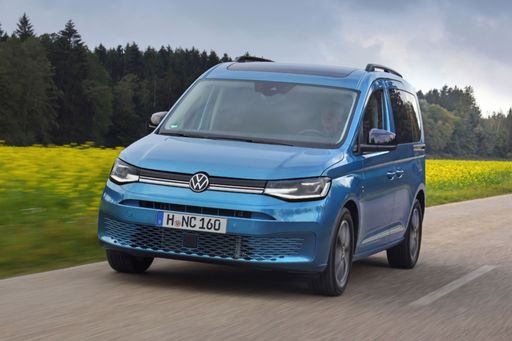
VW Caddy
Peugeot Traveller
The Traveller captivates with its refined blend of comfort and versatility, making it an ideal choice for both family adventures and professional needs. Its spacious interior accommodates a remarkable range of passenger and cargo configurations, ensuring flexibility for any journey. With an emphasis on safety and modern features, the Traveller delivers a remarkable driving experience that caters to diverse lifestyles.
details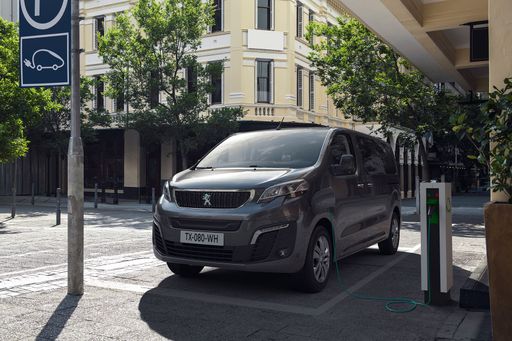 @ media.stellantis.com
@ media.stellantis.com
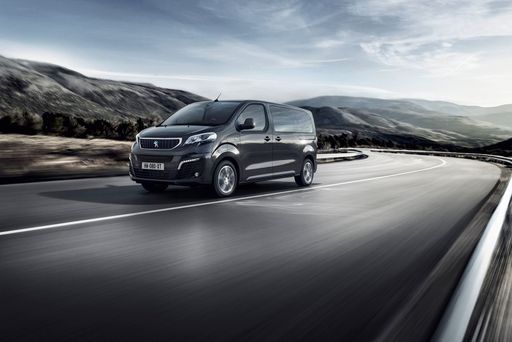 @ media.stellantis.com
@ media.stellantis.com
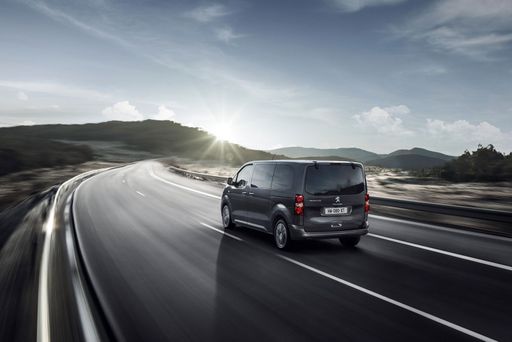 @ media.stellantis.com
@ media.stellantis.com
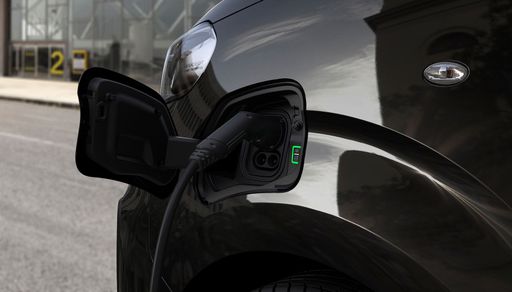 @ media.stellantis.com
@ media.stellantis.com
VW Caddy
The VW Nutzfahrzeuge Caddy Hochdach-Kombi is a versatile choice for those seeking extra space and practicality in their everyday vehicle. With its functional high roof and adaptable interior, it easily accommodates both passengers and cargo. The Caddy also stands out with its modern design and features aimed at providing comfort and convenience on the road.
details @ vwpress
@ vwpress
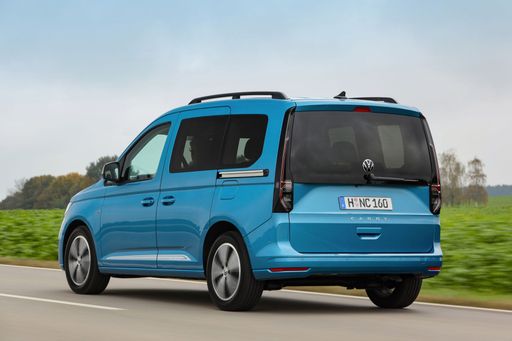 @ vwpress
@ vwpress
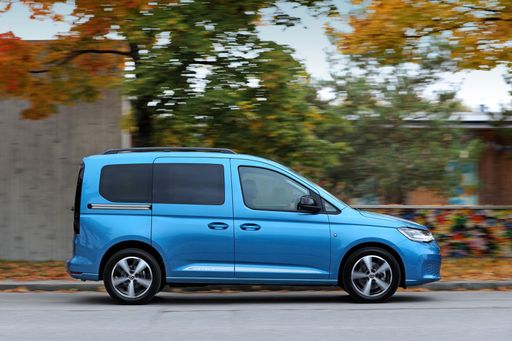 @ vwpress
@ vwpress
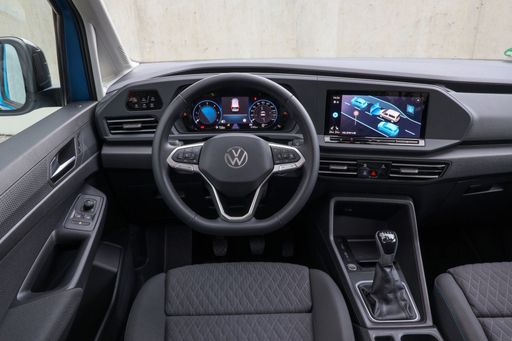 @ vwpress
@ vwpress

|

|
|
|
|
Costs and Consumption |
|
|---|---|
|
Price
34800 - 52200 £
|
Price
27800 - 45900 £
|
|
Consumption L/100km
7 - 7.1 L
|
Consumption L/100km
0.5 - 6.9 L
|
|
Consumption kWh/100km
24.3 - 25 kWh
|
Consumption kWh/100km
-
|
|
Electric Range
217 - 351 km
|
Electric Range
116 - 121 km
|
|
Battery Capacity
-
|
Battery Capacity
19.70 kWh
|
|
co2
0 - 188 g/km
|
co2
10 - 165 g/km
|
|
Fuel tank capacity
70 L
|
Fuel tank capacity
50 L
|
Dimensions and Body |
|
|---|---|
|
Body Type
Bus
|
Body Type
High Roof Estate
|
|
Seats
8
|
Seats
5 - 7
|
|
Doors
5
|
Doors
5
|
|
Curb weight
1953 - 2240 kg
|
Curb weight
1575 - 1998 kg
|
|
Trunk capacity
1624 - 2011 L
|
Trunk capacity
-
|
|
Length
4983 - 5333 mm
|
Length
4500 - 4853 mm
|
|
Width
1920 mm
|
Width
1855 mm
|
|
Height
1890 mm
|
Height
1819 - 1860 mm
|
|
Max trunk capacity
2700 - 3300 L
|
Max trunk capacity
2556 - 3700 L
|
|
Payload
850 - 914 kg
|
Payload
501 - 710 kg
|
Engine and Performance |
|
|---|---|
|
Engine Type
Electric, Diesel
|
Engine Type
Petrol, Diesel, Plugin Hybrid
|
|
Transmission
Automatic
|
Transmission
Manuel, Automatic
|
|
Transmission Detail
Reduction Gearbox, Automatic Gearbox
|
Transmission Detail
Manual Gearbox, Dual-Clutch Automatic
|
|
Drive Type
Front-Wheel Drive
|
Drive Type
Front-Wheel Drive, All-Wheel Drive
|
|
Power HP
136 - 180 HP
|
Power HP
102 - 150 HP
|
|
Acceleration 0-100km/h
10.6 - 14.2 s
|
Acceleration 0-100km/h
11.4 - 14 s
|
|
Max Speed
130 - 185 km/h
|
Max Speed
173 - 186 km/h
|
|
Torque
270 - 400 Nm
|
Torque
220 - 320 Nm
|
|
Number of Cylinders
4
|
Number of Cylinders
4
|
|
Power kW
100 - 132 kW
|
Power kW
75 - 110 kW
|
|
Engine capacity
2184 cm3
|
Engine capacity
1498 - 1968 cm3
|
General |
|
|---|---|
|
Model Year
2024 - 2025
|
Model Year
2024
|
|
CO2 Efficiency Class
A, G
|
CO2 Efficiency Class
E, F, B
|
|
Brand
Peugeot
|
Brand
VW
|
What drivetrain options does the Peugeot Traveller have?
Available configurations include Front-Wheel Drive.
The prices and data displayed are estimates based on German list prices and may vary by country. This information is not legally binding.
